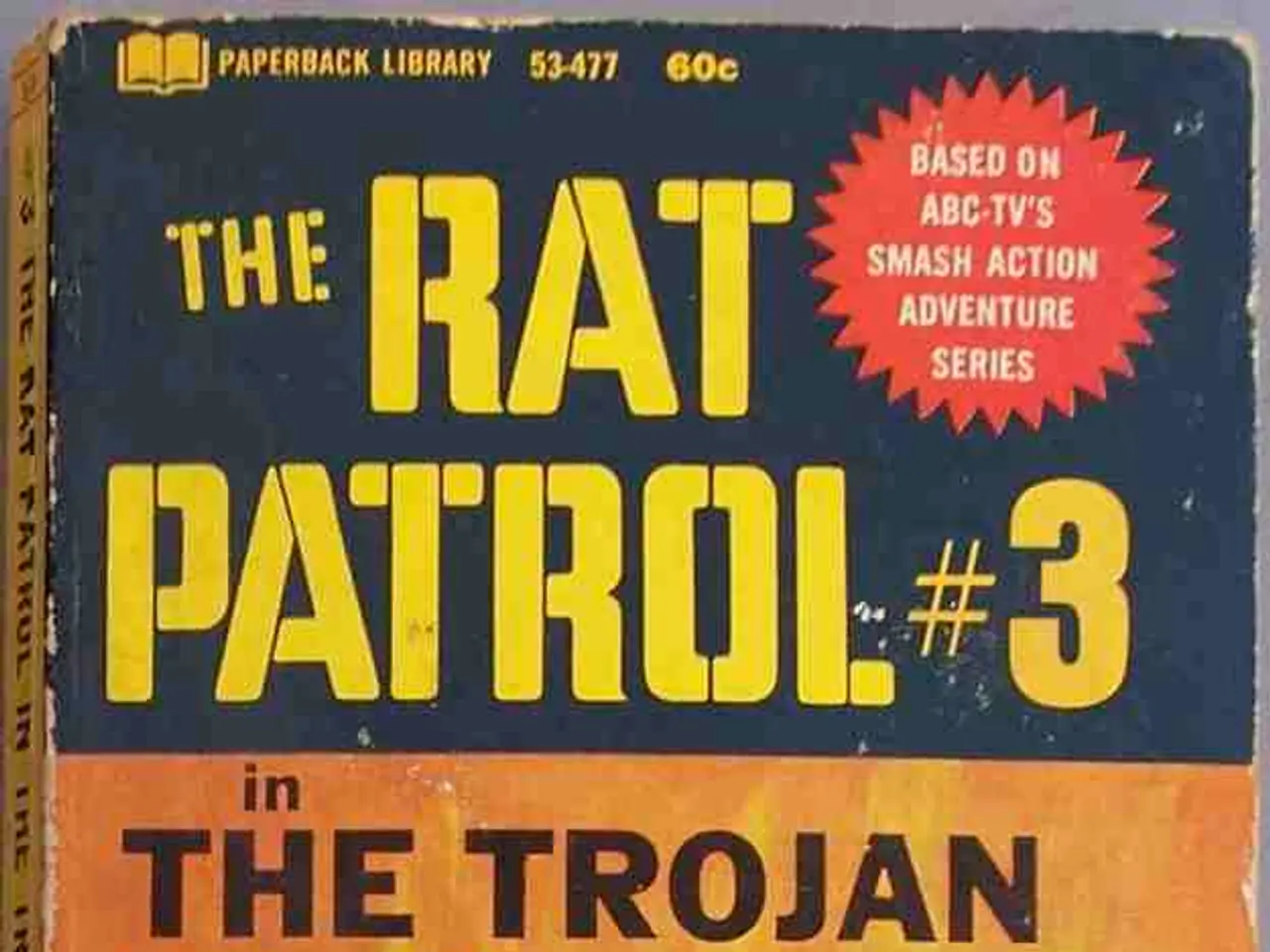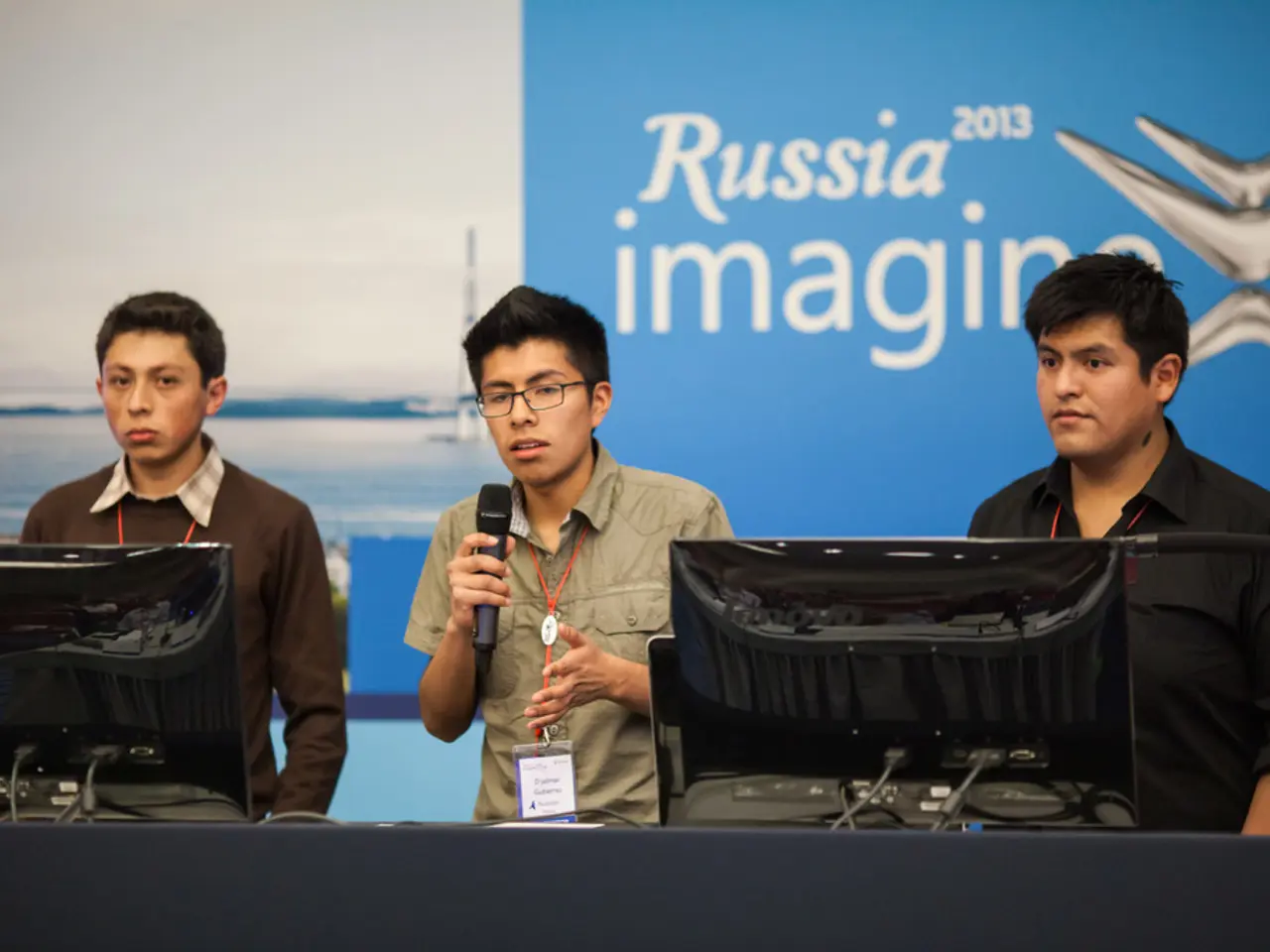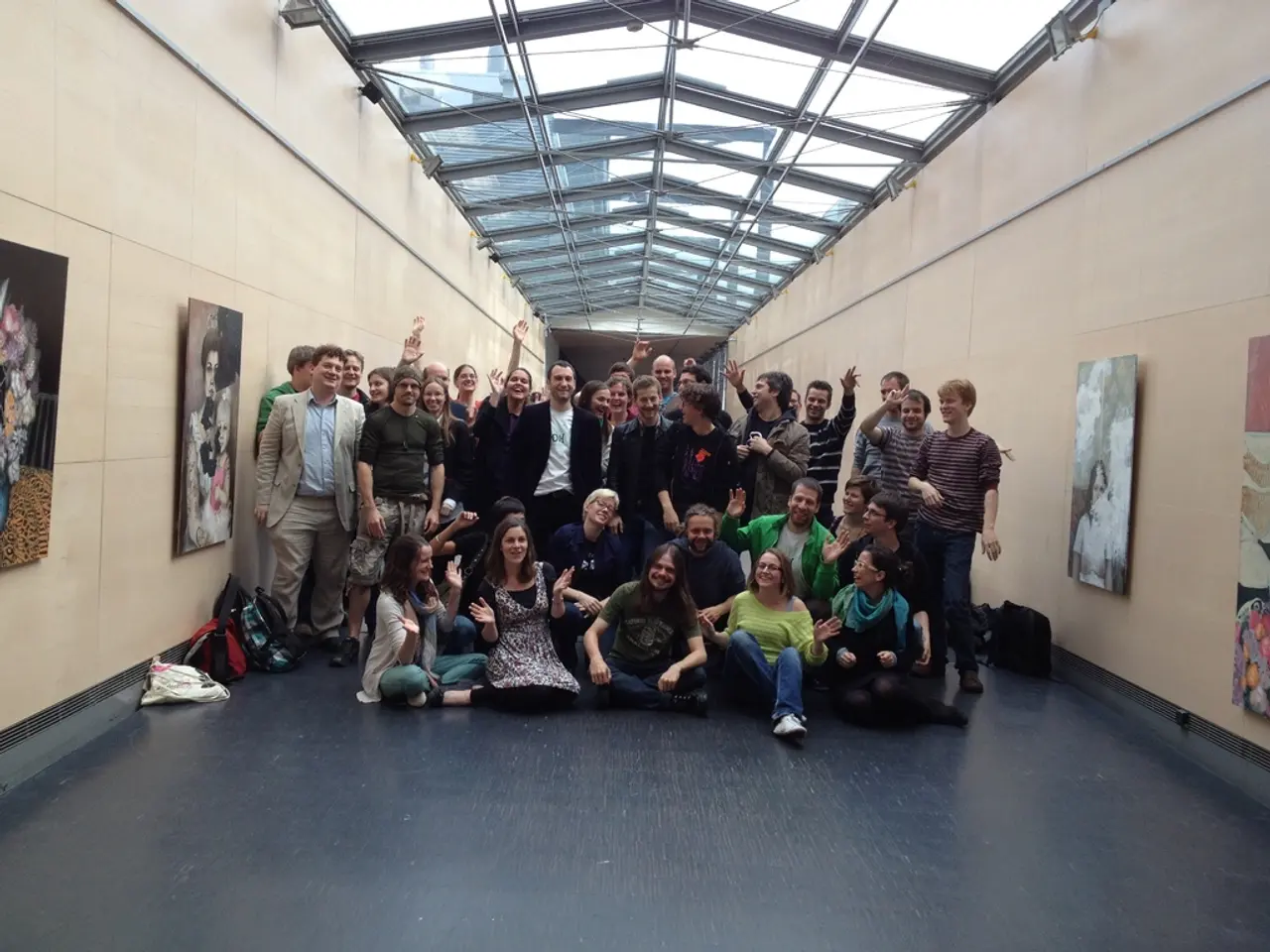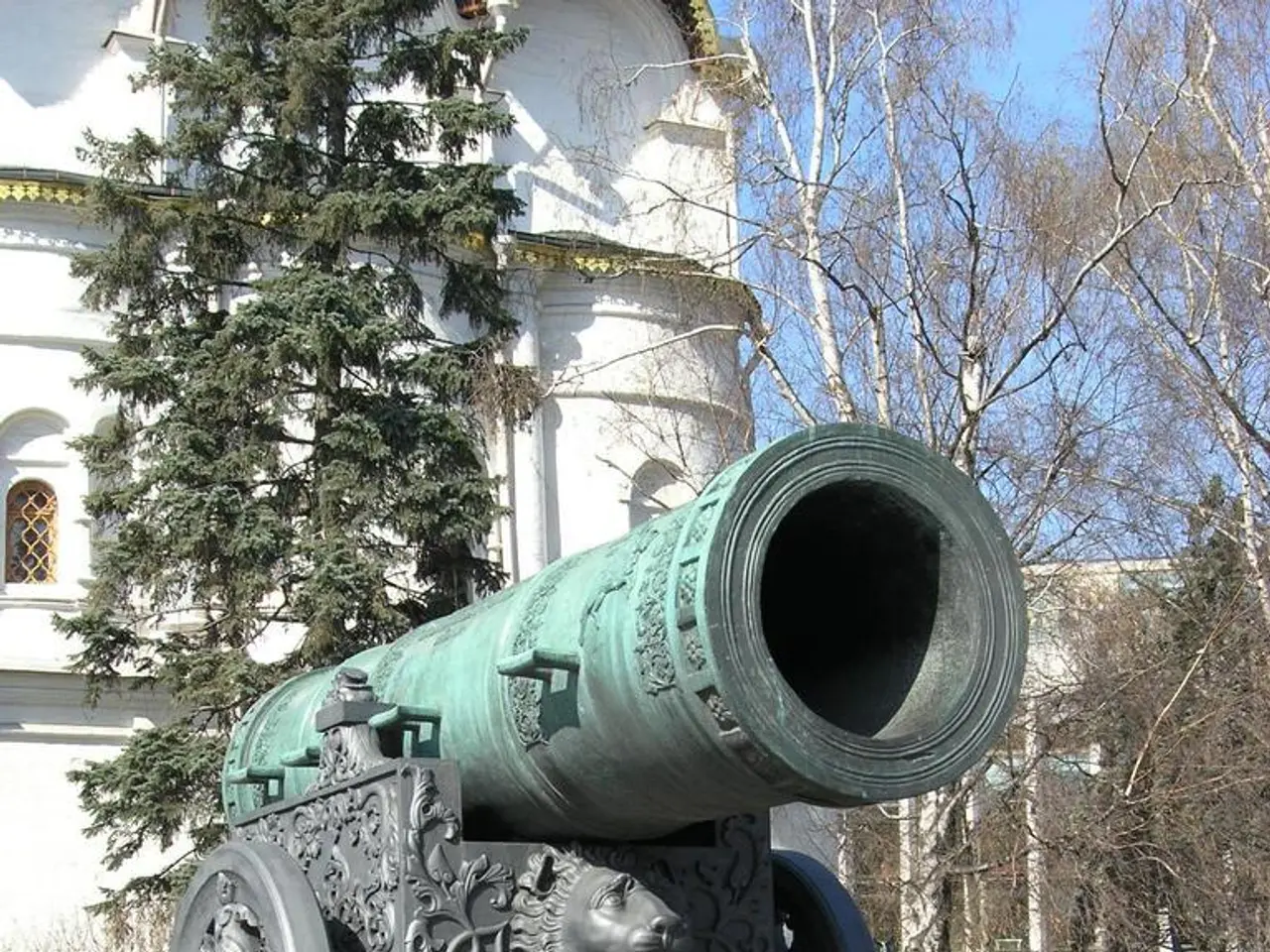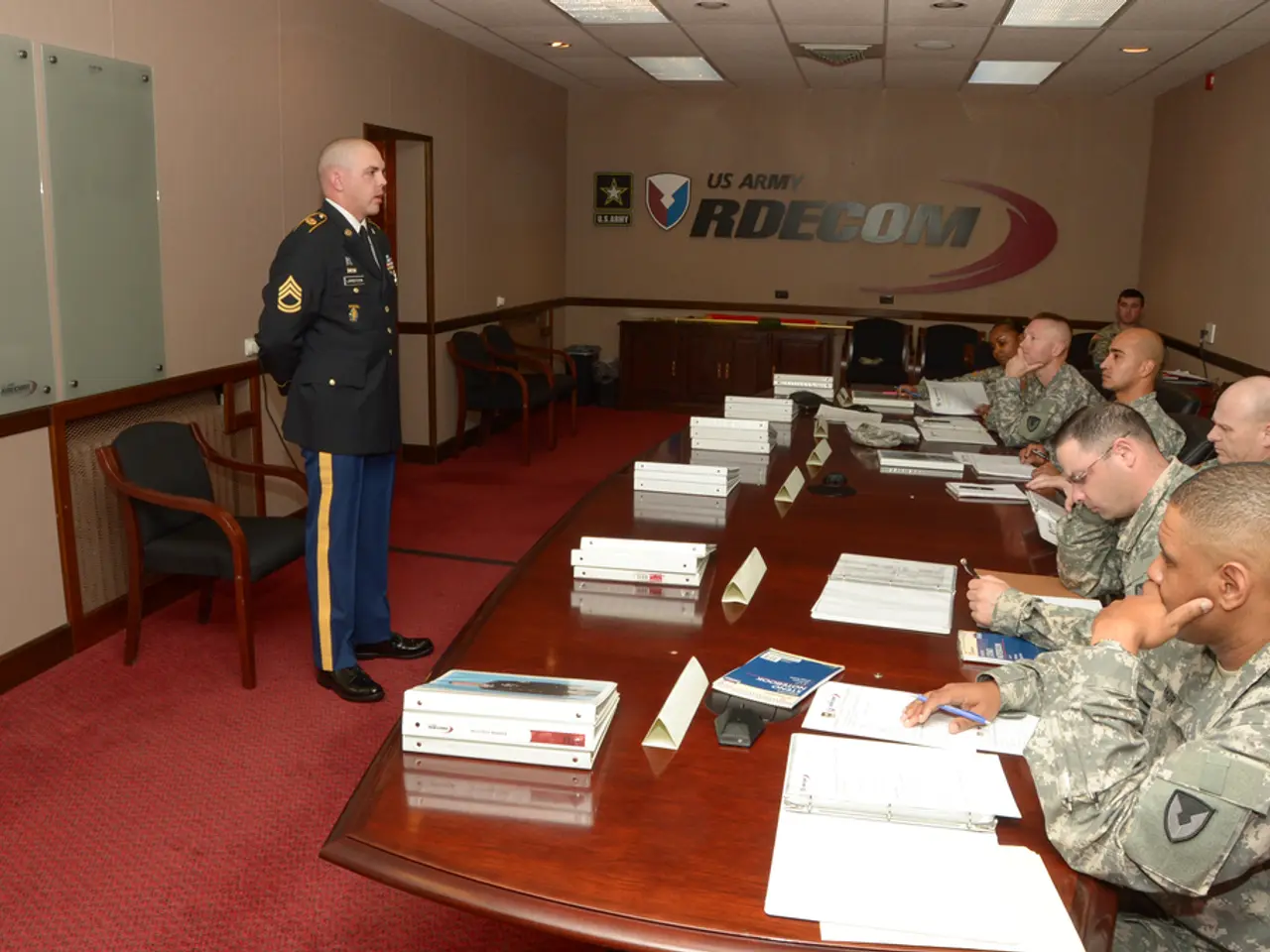Hamas insists on disarming only after the establishment of an autonomous Palestinian state.
In the ongoing conflict between Israel and Hamas, efforts to broker a ceasefire remain at an impasse. The latest round of negotiations, mediated by Egypt, Qatar, and the United States, have stalled, with neither side agreeing to the conditions set by the international community.
Hamas, the dominant power in Gaza, has reiterated its stance that it will not lay down its arms unless an independent Palestinian state is established. This position has led to a disengagement from ceasefire talks, as the group insists that Israel must change its stance regarding the two-state solution.
Israel, on the other hand, demands that any ceasefire agreement must include Hamas's disarmament. This position is supported by the Arab League, marking the League's first formal adoption of this stance regarding Hamas.
A recent high-level international conference at the United Nations called for Hamas’s disarmament and the release of hostages as prerequisites for a ceasefire and long-term political resolution. The League of Arab States endorsed these steps, adding weight to the international calls for resolving the conflict.
The ongoing conflict has taken a heavy toll on the people of Gaza, with worsening humanitarian conditions under Israeli restrictions. Severe food insecurity and rising malnutrition-related deaths have added urgency to international calls for resolving the conflict.
The broader context includes the devastation caused by the war, with much of Gaza turned into a wasteland, over 60,000 Palestinians killed, and a humanitarian catastrophe set off. The proposed two-state solution includes Hamas handing over their arms to the Western-backed Palestinian Authority.
Recent developments have seen Qatar and Egypt endorsing a declaration by France and Saudi Arabia outlining steps toward a two-state solution to the Israeli-Palestinian conflict. However, the negotiations between Israel and Hamas have yet to result in a ceasefire or hostage release deal.
The conflict continues, with both parties trading blame for the lack of progress in negotiations. Last month, Israeli Prime Minister Benjamin Netanyahu stated that any future independent Palestinian state would be used to destroy Israel. In response, Hamas stated that they will not disarm unless an independent Palestinian state is established.
The war between Israel and Hamas started on October 7, 2023, when Hamas-led militants stormed into southern Israel, killing 1,200 people and taking 251 hostages back to Gaza. Indirect negotiations for a 60-day ceasefire and hostage release deal ended in deadlock last week.
As the negotiations continue, the international community remains hopeful for a resolution that addresses the humanitarian crisis in Gaza, resolves the issue of disarmament, and establishes a lasting peace in the region.
- Saudi Arabia, being part of the Arab League, has approved a stance that emphasizes Hamas's disarmament as a prerequisite for a ceasefire in the Israeli-Palestinian conflict.
- In the midst of the media coverage of war-and-conflicts and general-news in Arabia, the ongoing East-Middle Eastern conflict, particularly between Israel and Hamas, is a major focus.
- The ongoing Israeli-Palestinian conflict, a subject of intense politics and news, involves discussions about the proposed two-state solution, which includes the Arab Islamic group, Hamas, handing over their arms to the Western-backed Palestinian Authority, a key point in the art of negotiation and diplomacy.
- In the efforts to resolve the Israeli-Palestinian conflict, the international community convened a conference, discussing key steps such as Hamas's disarmament and hostage release as prerequisites for a long-term ceasefire and peace, echoing general-news coverage of the event in Saudi Arabia and beyond.
